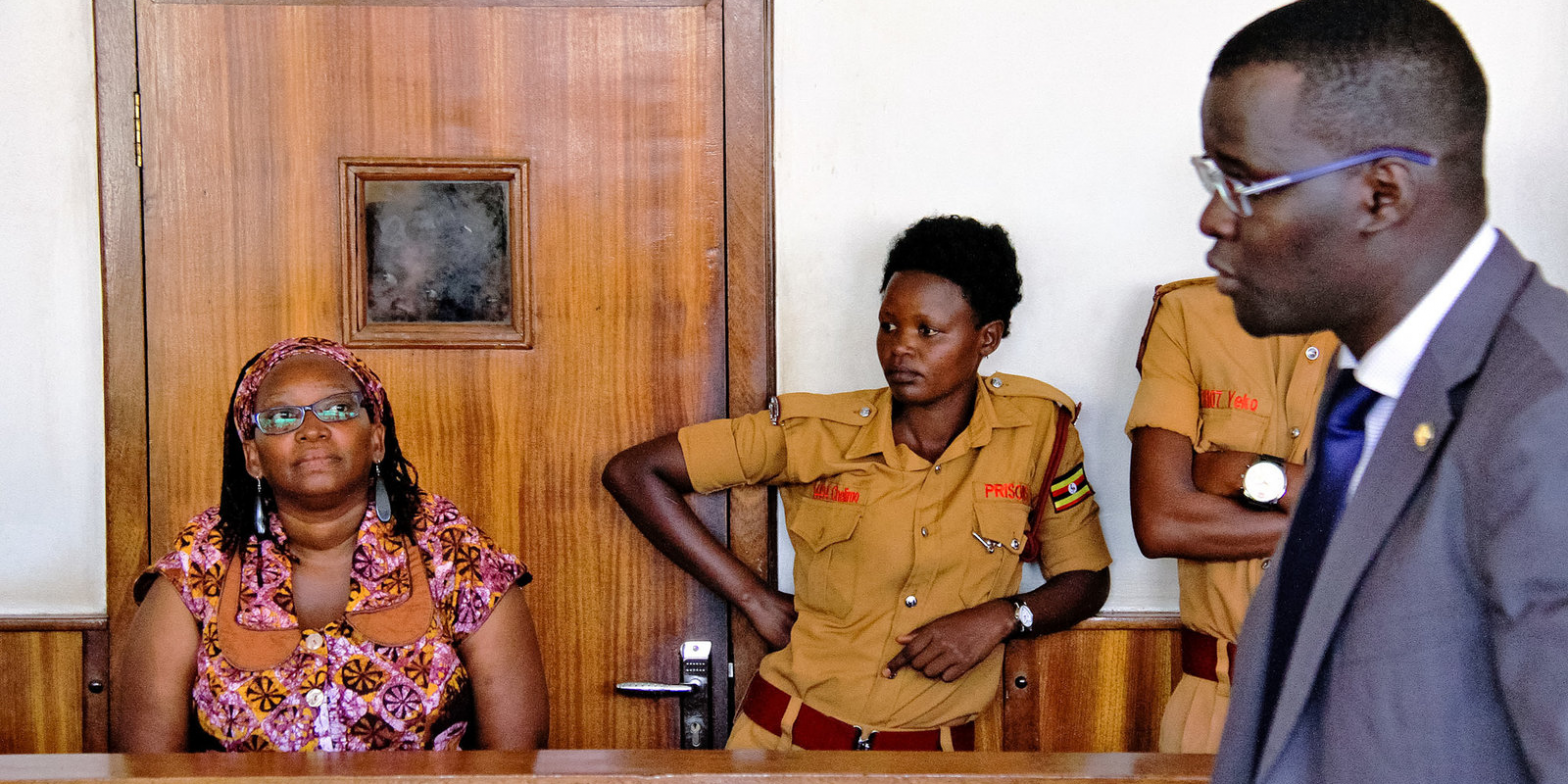On September 16, 2018, following Ugandan President Yoweri Kaguta Museveni’s birthday, activist Stella Nyanzi posted a poem to Facebook—one that would eventually have her jailed. The first two lines read: “Yoweri, they say it was your birthday yesterday / How bitterly a sad day!”
Nyanzi continues, employing vivid metaphors and invoking images of Muzeveni’s mother’s vagina. She asserts that if only he had drowned in his mother’s vaginal discharge, their country would have been spared from over thirty years of poor governance and sorrow.
It was this courageous denunciation of the oppression and erosion of morality under Museveni’s cruel hand that landed Nyanzi in jail. On November 2, 2018, the activist was arrested at a police station where she was securing clearance for a planned peaceful protest. She was charged with infractions of cyber harassment and offensive communications, based on the provisions under Computer Misuse Act, 2011. The state claims that in addition to violating the president’s right to privacy, Nyanzi’s Facebook poem contains vulgar and indecent speech that does not follow their country’s cultural precepts.
While the language in it is shocking, the now infamous vagina poem is characteristic of Nyanzi’s penchant for challenging authority through insults. This approach, known as “radical rudeness,” embraces anti-colonial traditions that date back to the 1940s. According to historian Carol Summers, Ugandan activists have long used “a rude, publicly celebrated strategy of insults, scandal mongering, disruption, and disorderliness that broke conventions of colonial friendship, partnership, and mutual benefit.”
For decades, Nyanzi has been a formidable activist, brilliant writer, and well-published researcher in the subjects of sexuality and women’s rights. It was only recently, by using social media platforms such as Facebook to criticize Museveni’s regime, that she became a household name. But in Uganda, where civil liberties and freedom of speech are increasingly curtailed by the government, engaging in “radical rudeness” will continue to come at a cost to activists like Nyanzi. Bwesigye Bwa Mwesigire, a Ugandan writer and lawyer, says that Nyanzi’s prosecution is “a warning that those who follow her form of activism will face the same wrath of the law.”
Nyanzi’s detention occurred in stride with numerous other actions that the Ugandan government has taken to silence dissenting opinions. For example, Museveni urged the formation of a new social media tax to lessen “online gossip.” This tax, now affecting over sixty online platforms, requires citizens to pay 200 Ugandan shillings per day in order to use sites such as Facebook and Twitter.
This was not the first time Nyanzi has been jailed, either. In 2017, the activist was arrested for a month due to another post on Facebook, in which she called President Museveni “a pair of buttocks,” and the First Lady “empty brained.” The post was prompted by the failure of the president and first lady to fulfill their promise of providing sanitary pads to schoolgirls.
Part of the backlash against Nyanzi may have been because, as editor of African Feminism Rosebell Kagumire says, Nyanzi “uses the freedom of expression that is usually reserved for men—the freedom to insult.” But Museveni’s ability to use the government as a means of silencing Nyanzi is a matter that should trouble females throughout the world, not just in Uganda.
Why? Because the same patriarchal views that attempt to muffle Nyanzi are why Samar Badawi and Nassima al-Sadah of Saudi Arabia were thrown in jail for their human rights activism. They were present in the motives behind the murder of Miroslava Breach in Mexico, and they are echoed in tweets that discredit congresswomen like Ilhan Omar and Alexandria Ocasio-Cortez when they speak out against prejudice.
Across the globe, women who express fierce opposition to injustice put themselves at risk of being vilified, harassed, and sometimes even killed. But to those of us who live where speaking out is not life-threatening: it is our responsibility to stand up on behalf of those who cannot.
Promoting gender equality and female empowerment around the world is essential for sustainable development in nearly every domain of life. For practical matters, women are, in fact, around 50% of the world’s population. By keeping them from enjoying the same liberties, opportunities, and responsibilities as men, oppressive systems curb what constitutes half of the world’s brain power, workforce, talent, and creativity. So long as women are left undervalued at home, underpaid at work, unacknowledged in politics, and underestimated in school, how can families, communities, and nations prosper?
As Kagumire said, Nyanzi made use of the freedom to insult, a method that women are unjustly denied in many oppressive systems. How is it fair that men are given the ability to throw scorn towards women who desire to use their right to confrontation? Why is an assertive man considered strong and driven, while the same quality in a woman makes her bossy, rude, or bratty? It is double standards like these that allow patriarchal regimes to grow stronger, despite their blatant squandering of basic human rights. It is imperative that we directly and unequivocally challenge the norms that make it acceptable for men to suppress the women who are fighting for themselves, their families, and their nations. If we wish to move forward as a society and rise above such corruption, we must learn to accept the dissenting voices around us—from men or women. We must move towards realizing the truth behind freedom of speech for both women and men, even if they choose to express themselves in ways that are shocking to others.
It is time for the international community to work in solidarity to ensure that regardless of one’s race, creed, or gender, all individuals are given equal opportunities. It is time to engage, whether through donations to groups that aid female advocates, by joining girl power campaigns, or by supporting the women in our own lives. Women’s rights are human rights, and it is important for us to move beyond mere discourse to tangible actions that recognize this indisputable fact.

